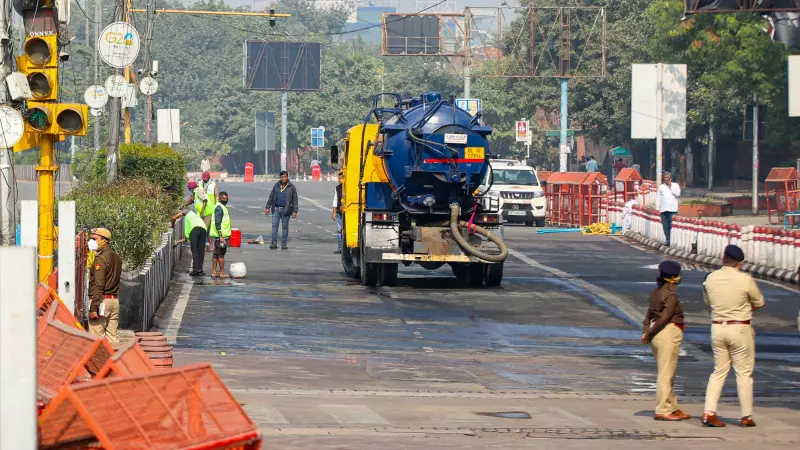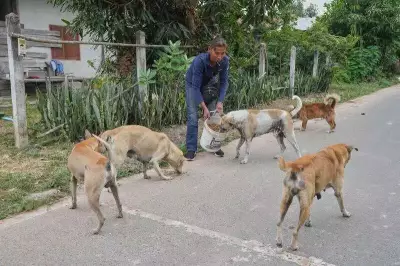
Five days after a devastating car explosion outside the Lal Qila Metro station claimed ten lives and left multiple injured, the historic Chandni Chowk market showed tentative signs of returning to normalcy on Saturday, though an undercurrent of tension remained palpable throughout the area.
Recovery Efforts and Vehicle Retrieval
On Saturday afternoon, Delhi Police finally cleared the blast site and reopened surrounding streets to traffic, allowing residents and shopkeepers to gradually return to the area. The most visible activity centered around police personnel stationed near the Chandni Chowk market entrances, where they managed stacks of paperwork from people seeking to recover vehicles abandoned during Monday's chaos.
Among those hoping to reclaim his scooter was Ramkar Yadav, who had traveled from Faridabad only to face resistance from a constable. The police officer initially refused, referencing recent events in Faridabad and expressing concern about potential trouble. Fortunately, Yadav carried his registration certificate and Aadhaar card, which eventually convinced the constable to release his vehicle with a stern warning not to return.
Visible Scars and Lingering Tension
The physical damage from the explosion remained clearly visible throughout the area. The police chowki outside the Red Fort stood misshapen with its roof completely collapsed, according to a whispering constable. Charred display boards hung precariously over moving traffic, while workers at the Lal Qila Metro station continued dismantling shattered window panes.
Inside the metro station, armed personnel maintained heightened vigilance, scrutinizing every passerby with increased intensity. The Delhi Metro Rail Corporation confirmed via social media that gates 2 and 3 had reopened for commuters by Saturday afternoon.
The psychological impact of the blast manifested in small but telling incidents. When a black trash bag lay abandoned on the street, rickshaw drivers and shoppers circled it warily until one man finally kicked it open, sending garbage flying and triggering a brief panic as people instinctively scattered.
Business Impact and Personal Stories
For a weekend during the peak wedding season, the market felt unusually empty. Shopkeepers who had returned couldn't help but revisit the traumatic events of November 10.
Ajay Kumar, an electronics shop owner who became the fourteenth person to reclaim his vehicle, recounted his narrow escape. "It's just kismat that saved us," he said, explaining that he and his employee had left the scooter behind due to heavy traffic just minutes before the explosion. "A minute here or there and we would have died." His scooter survived undamaged because an SUV parked in front absorbed most of the blast impact.
Another shopkeeper, Shingu, arrived to recover his scooter and reflected on the familiar faces now missing from the market. He pointed toward the metro gate while mentioning a chaiwala who was a heart patient and likely startled to death by the explosion's sound. The two shopkeepers named other regulars who perished—a shop boy on the road divider, a water tanker driver, and a chana seller.
Economic Necessity Overcomes Fear
While shops had technically reopened, the usual throng of street sellers remained noticeably absent. Indrajit Kumar Mukhiya, a belt hawker, explained why he returned despite ongoing fears: "Humara roz ki kamayi ka sawaal hai, isiliye hum aa gaye." His sentiment was echoed by fellow belt seller Kundan Kumar, who admitted avoiding the area for three to four days after hearing the explosion and seeing the sky turn red.
Most shopkeepers counted their blessings while acknowledging significant business losses. Vicky, who sells earbuds and audio jacks, expressed gratitude that the explosion didn't occur on a Sunday when foot traffic would have been substantially higher.
Despite prevailing anxieties, the market lanes gradually began filling again. When asked about their concerns, shopper Rinky, who was browsing lehengas with two friends, shrugged philosophically. "Anyone who has to shop for a wedding has to come here," she said, adding that such incidents rarely strike the same place twice.





